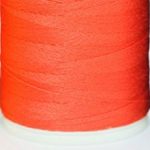The developments of protection of test data in Brazil
- 21 September 2014
- Articles
The commercialization of a pharmaceutical product in Brazil depends on the sanitary registration granted by ANVISA (National Health Surveillance Agency). To obtain this registration is necessary to submit a series of tests to prove, for example, safe levels of toxicity, efficacy and quality of the product. In general, these tests take a long time, are performed in animals and humans, and involve high financial investment of pharmaceutical companies.
The commercialization of a pharmaceutical product in Brazil depends on the sanitary registration granted by ANVISA (National Health Surveillance Agency). To obtain this registration is necessary to submit a series of tests to prove, for example, safe levels of toxicity, efficacy and quality of the product. In general, these tests take a long time, are performed in animals and humans, and involve high financial investment of pharmaceutical companies.
Brazilian law does not provide exclusivity for the test data submitted to ANVISA for marketing approval of pharmaceutical products for human use. Law 10,603 of December 17th, 2002, insures data package exclusivity periods only for pharmaceutical products of veterinary use, fertilizers, agrochemicals, their components and the like.
According to the article 195 (XIV) of Brazilian Industrial Property Law 9,279/96, it is considered crime of unfair competition the disclosure, exploitation, or the use, without authorization, of the results of tests which have been presented to government entities for approving marketing of products.
However, this has not ever been so. The Provisional Decree nº 69, of September 26, 2002, insured data package exclusivity periods for pharmaceutical products of human use and veterinary products, fertilizers, agrochemicals, their components and the like.
Differently from the reference medicaments (innovator medicaments) which must present pre-clinical and clinical studies to ANVISA, the generic drugs do not need to submit these data again. For commercial approval of generic drugs, the requirement is only to present information about the quality of the medicament and interchangeability (bioequivalence tests and bioavailability) with the reference medicament.
However, to verify bioavailability and bioequivalence of generic drugs in relation to the reference medicament, ANVISA would have to make use of the test data of the reference medicament, as presented, to make this comparison.
Based on this, many pharmaceutical companies have attempted to obtain the exclusivity of the test data through lawsuits, by alleging, essentially, that ANVISA would be infringing article 195 (XIV) of the Brazilian IP Law.
Currently, there is a legislative bill in the House of Representatives (PL 5.402/2013) which aims to amend the article 195 of the Brazilian IP Law by the inclusion of a paragraph which states that “The provisions in the item XIV are not applicable to the use of results of tests or other data undisclosed, by governmental entities, for commercialization approval of products equivalent to product for which they were originally submitted.








